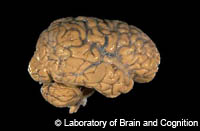Neurons: transformers in disguise
Neurons, the cells in the central nervous system (CNS), which when damaged can lead to neurodegenerative diseases, are now believed to have the ability to regulate the immune system and put a stop to their own destruction, a recent study by Swedish scientists reveals. Previously, it was thought that neurons had no role to play in regulating the immune system in the brain, since neurons do not express molecules known to be involved in the process. 'Now, we show that motor neurons are capable of actively regulating immune response and indeed have a central role in the prevention of CNS inflammation,' says Associate Professor Shohreh Issazadeh-Navikas at Lund University. Known also as nerve cells - though inaccurate since they do not form nerves - neurons are found in the brain and are responsible for issuing and receiving electrical signals to and from other parts of the body, as well as controlling all functions in humans and animals. There are several types of neurons, which are classified by the direction in which they send information. The study shows that neurons not only act as messengers, but can also transform harmful T cells entering the brain during a viral infection, or as a result of mechanical damage to the CNS, causing inflammatory diseases and autoimmune illnesses such as multiple sclerosis. While the causes of some neurodegenerative diseases like Alzheimer's are yet to be fully understood, scientists now also view inflammation of the brain as a one of the triggers of the disease. The research is based on previous observations made by Shohreh Issazadeh-Navikas, which showed that neurons secreted a number of immunological proteins that could combat such illnesses. According to the Professor, the study's findings could lead to novel therapeutic approaches for inflammatory and neurodegenerative diseases.
Countries
Sweden



